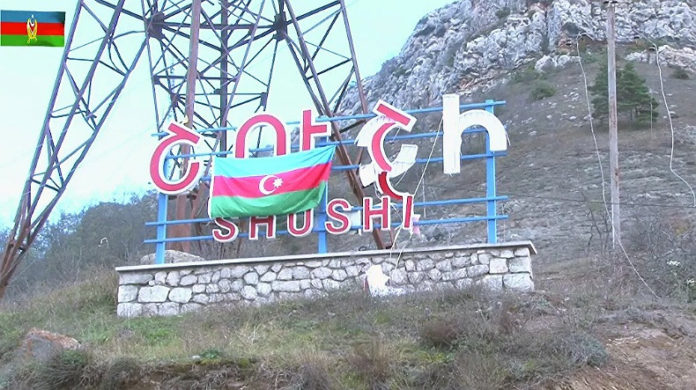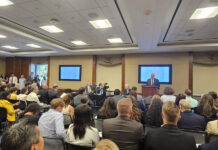By Sargis Harutyunyan
YEREVAN (Azatutyun/News.am) — Azerbaijan has condemned the US and French ambassadors in Baku for declining to join other foreign diplomats in visiting the Karabakh town of Shushi (Shusha) captured by the Azerbaijani army during the 2020 war.
The senior diplomats representing several dozen nations traveled to Shushi over the weekend to attend a conference organized there by the Azerbaijani government. The US and French ambassadors were conspicuously absent from the event.
“We regard this as a disrespectful attitude towards territorial integrity,” Hikmet Hajiyev, Azerbaijani President Ilham Aliyev’s chief foreign policy aide, said during the conference.
Hajiyev charged that the United States and France have done little to help resolve the Karabakh conflict in their capacity as co-chairs of the Organization for Security and Cooperation in Europe (OSCE) Minsk Group.
“It’s not clear whether they cannot accept Azerbaijan’s territorial integrity or the reconstruction work taking place in Shusha,” he said.








